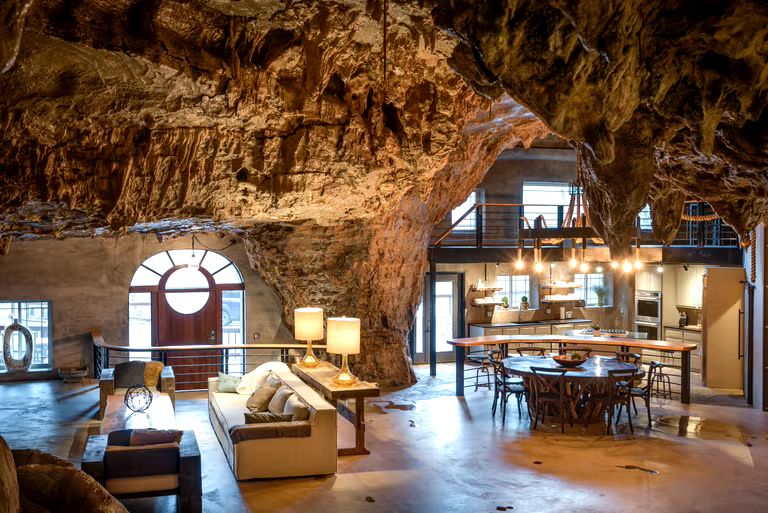
Spain, known for its sunny beaches, picturesque cities and cultural heritage, offers tourists a variety of accommodation options. But among hotels, apartments and traditional villas, an unusual format – renting cave houses – is gaining popularity. These unique dwellings, carved into the rocks, attract the attention of both tourists and locals. However, the development of this sector faces a number of restrictions, including issues of tourist licenses, which gives rise to discussions about the future of this market.
Caves as a unique housing format
Cave houses in Spain, especially common in Andalusia and the south of the country, have a long history. Such houses have traditionally been used as living spaces due to their natural climate control: they keep cool in summer and warm in winter. In recent years, many of them have been transformed into stylish and comfortable places to live, while retaining their uniqueness and authenticity.
Caves have become especially popular among tourists looking for unusual impressions and unique experiences. It’s not just accommodation, but an opportunity to ‘touch’ ancient architecture and immerse yourself in the atmosphere of the past. Modern cave houses are often equipped with all the necessary amenities, from Wi-Fi to swimming pools, making them an ideal choice for travelers looking to combine comfort with authenticity.
The problem of tourist licenses
With the development of the cave house rental market, certain problems have arisen related to obtaining tourist licenses. In Spain, as in many other countries, there is a strict regulation of the short-term rental market. In recent years, many autonomous regions of Spain, especially Catalonia and Balearic Islands, have tightened regulations on obtaining tourist licenses, due to the sharp rise in rental prices and pressure on the real estate market.
These restrictions address two key concerns. First, the rise of short-term rentals in major cities such as Barcelona and Madrid has driven up housing prices for locals, causing social discontent. Second, overcrowding in tourist areas increases pressure on infrastructure and creates environmental and social problems.
Impact on the cave home market
Although cave houses are located mainly in rural areas, far from major tourist centers, they have also come under the influence of new regulations. In order to rent such houses to tourists, owners must obtain a tourist license, which is often accompanied by lengthy bureaucratic procedures and strict requirements for safety and comfort of accommodation.
On the one hand, this improves the quality of the accommodation offered and ensures that tourists receive an appropriate level of service. On the other hand, such restrictions may discourage small owners who are not willing to spend time and money to obtain licenses. As a result, many cave houses remain unused, hampering the development of this sector.
Prospects and challenges
Restrictions on tourist licenses call into question the future of the cave house rental market. However, many owners and investors are finding ways around these obstacles. Some offer cave rentals on a long-term basis, which does not require a license, or invest in developing cave complexes with hotel licenses, which avoids the problems of short-term rentals.
At the same time, the state authorities realize the uniqueness of such sites and are considering the possibility of providing preferential conditions for owners of cave houses in rural areas. This could include simplifying the process of obtaining licenses or even subsidies for the development of such projects in order to support tourism and the local economy.
Cave house rentals in Spain are not just an unusual housing format, but an important part of the country’s cultural and tourist heritage. Such houses provide unique opportunities for travelers, but face a number of restrictions related to obtaining tourist licenses. The future of this sector will depend on whether the authorities can find a balance between preserving cultural sites, supporting tourism and regulating the rental market. Regardless, caves will remain a sought-after and attractive option for those looking for an unusual experience in Spain.

